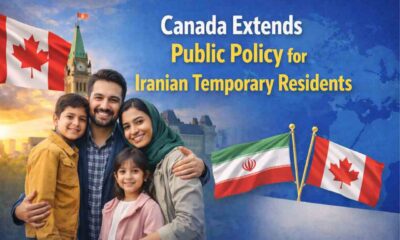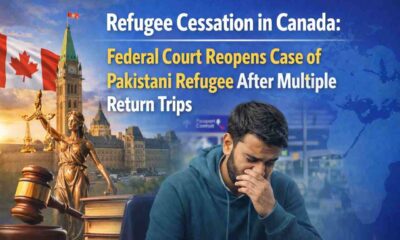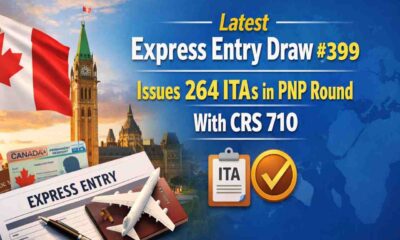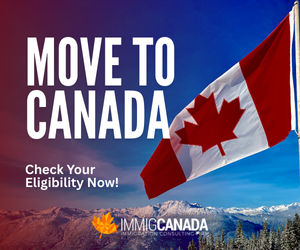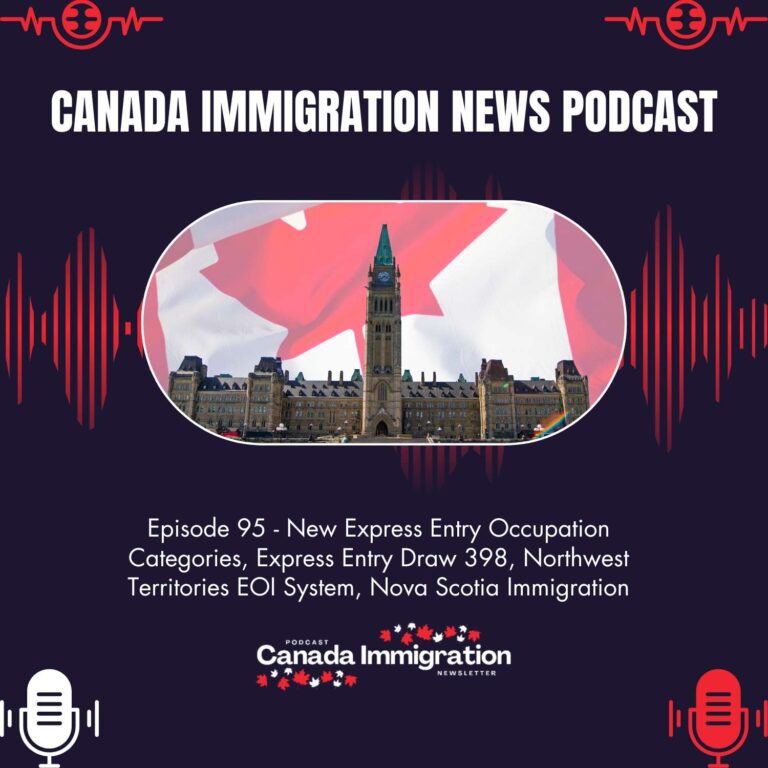Study in Canada
How to Use Canada’s Study Permit Tool: A Step-by-Step Guide to Applying for a Study Permit

If you’re planning to study in Canada, obtaining a study permit is one of the most critical steps in your application process. Canada’s Study Permit Tool is designed to help international students determine their eligibility and navigate the complexities of the study permit application. In this comprehensive guide, we’ll walk you through everything you need to know about using the tool, how to apply for a study permit, and additional tips to increase your chances of approval.
What is the Study Permit Tool?
The Study Permit Tool provided by Immigration, Refugees, and Citizenship Canada (IRCC) is an online resource designed to help prospective students determine whether they need a study permit to study in Canada. It also provides personalized guidance on how to proceed with the application based on your specific situation.
Using the tool can be helpful in clarifying requirements, but it’s important to understand that it doesn’t guarantee eligibility or approval. It serves as a preliminary assessment, not a final decision-maker.
How to Use the Study Permit Tool: Step-by-Step Guide
Here’s a breakdown of how to use the Study Permit Tool and maximize its benefits:
1. Access the Tool
To start, you need to visit the official Canada Study Permit Tool page. The tool is free and available to everyone. It will guide you through a series of questions to determine if you need a study permit based on factors such as:
- Your nationality
- The type of educational program you plan to enroll in
- The length of your stay in Canada
2. Answer Eligibility Questions
You’ll be prompted to answer several questions, including:
- Are you a Canadian citizen, permanent resident, or foreign national?
- What type of program do you plan to study in?
- How long do you intend to stay in Canada?
Based on your responses, the tool will provide information on whether you need a study permit and the next steps to take.
3. Understand the Results
Once you complete the questionnaire, the tool will provide one of the following outcomes:
- Yes, you need a study permit. If this applies to you, the tool will give you a checklist of documents needed to apply.
- No, you don’t need a study permit. In some cases, you may be exempt from needing a study permit, such as when enrolling in short-term courses (less than six months).
The tool also provides tailored information based on your responses, helping you understand other potential requirements, like a temporary resident visa or biometrics.
Key Documents for Study Permit Applications
If you determine that you need a study permit, here’s a list of the key documents required to proceed with the application:
1. Letter of Acceptance (LOA)
A Letter of Acceptance from a Designated Learning Institution (DLI) is mandatory. Ensure that your institution is listed as a DLI to qualify for a study permit.
2. Proof of Financial Support
You must demonstrate that you can support yourself during your studies in Canada. This can include:
- Bank statements
- Scholarship or sponsorship letters
- Proof of payment for tuition and accommodation
3. Valid Passport
Your passport should be valid for the duration of your study program. In case your passport expires during your studies, you must renew it before applying for the permit.
4. Other Supporting Documents
Depending on your country of residence, additional documents such as police certificates, medical exams, or biometrics may be required.
Common Mistakes to Avoid When Applying for a Study Permit
To increase your chances of a successful study permit application, be mindful of these common mistakes:
1. Incomplete or Incorrect Information
Providing incomplete or incorrect information on your study permit application can lead to delays or outright rejection. Ensure all required fields are filled out accurately.
2. Not Proving Ties to Home Country
One of the primary reasons for study permit refusal is the inability to prove ties to your home country. Ensure you provide strong evidence that you intend to return to your home country after completing your studies. This can include family ties, property ownership, or a job offer upon return.
3. Inadequate Proof of Financial Support
Make sure that the proof of funds you provide clearly shows that you have enough financial resources to cover your tuition, living expenses, and return travel. IRCC may reject your application if you cannot demonstrate sufficient funds.
Understanding Study Permit Processing Times
Processing times for study permits vary depending on the applicant’s country of origin and other factors. Typically, processing can take anywhere from 3 to 12 weeks. It is advisable to apply as early as possible to avoid delays, especially if biometrics or interviews are required.
You can check current processing times on the IRCC website.
Study Permit Exemptions: Who Does Not Need a Permit?
In some cases, foreign nationals do not need a study permit to study in Canada. Here are the key exemptions:
1. Short-Term Programs
If your study program is less than six months, you may not need a study permit. However, if you plan to continue studying in Canada after completing the short program, you must apply for a study permit before enrolling in a longer-term course.
2. Family Members of Foreign Representatives
If you are a family member of a foreign representative accredited by Global Affairs Canada, you may not need a study permit. Make sure to provide proof of your status to IRCC.
3. Military Personnel
Members of foreign armed forces on active duty in Canada may study without a permit, but their family members must still apply.
What Happens After Receiving Your Study Permit?
Once your study permit is approved, you can start preparing for your arrival in Canada. Here’s what to expect next:
1. Port of Entry (POE) Letter
You will receive a Port of Entry (POE) Letter of Introduction, which you must present to a Canadian border services officer upon arriving in Canada. The officer will issue your study permit based on this letter.
2. Work While Studying
Your study permit allows you to work part-time during academic sessions (up to 20 hours per week) and full-time during scheduled breaks. No additional work permit is required as long as you meet the conditions outlined on your study permit.
3. Post-Graduation Work Permit (PGWP)
After completing your studies, you may be eligible for a Post-Graduation Work Permit (PGWP), which allows you to stay and work in Canada for up to three years.
Canada’s Study Permit Tool simplifies the process of determining your eligibility and applying for a study permit, making it easier for international students to achieve their academic goals.
By following this guide and avoiding common mistakes, you can increase your chances of a successful application and enjoy a fulfilling experience in one of the world’s top study destinations. Whether you plan to pursue short-term studies or a full degree program, Canada offers a wealth of opportunities for academic and personal growth.





